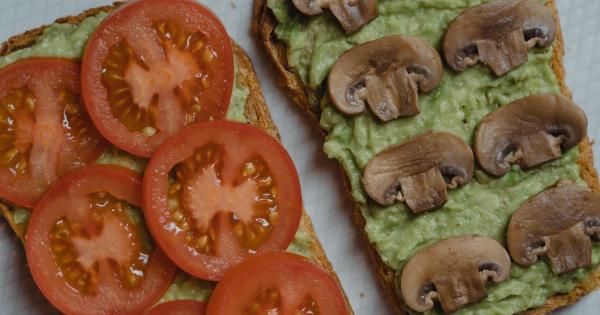Longevity, or the desire to live a long and healthy life, has been a topic of interest for centuries. With advancements in science and medicine, researchers have been able to uncover various factors that contribute to a longer lifespan.
One such factor that has gained popularity in recent years is vegetarianism. Many people believe that adopting a vegetarian diet can significantly increase their chances of living a longer and healthier life. However, it is important to separate the facts from the fiction when it comes to longevity and vegetarianism.
Defining Vegetarianism
Before delving into the impact of vegetarianism on longevity, it is essential to understand what exactly vegetarianism entails. Vegetarianism is a dietary practice that involves abstaining from the consumption of meat, poultry, and seafood.
However, there are different types of vegetarians, including:.
- Lacto-ovo vegetarians: These individuals avoid meat, poultry, and seafood but still consume dairy products and eggs.
- Lacto vegetarians: These individuals exclude meat, poultry, seafood, and eggs from their diet but still consume dairy products.
- Vegans: Vegans follow the strictest form of vegetarianism, avoiding all animal products, including meat, poultry, seafood, eggs, dairy, and even honey.
The Link Between Vegetarianism and Longevity
Several studies have explored the potential relationship between vegetarianism and longevity.
While there is no one-size-fits-all answer, evidence suggests that following a vegetarian diet can have significant health benefits that may contribute to a longer lifespan.
Reduced Risk of Chronic Diseases
One of the main reasons vegetarianism is thought to contribute to longevity is its positive impact on chronic diseases. Various research studies have shown that vegetarians, especially vegans, have a lower risk of developing conditions such as:.
- Heart disease
- High blood pressure
- Type 2 diabetes
- Obesity
- Certain types of cancer
These chronic diseases are major contributors to morbidity and mortality worldwide.
By adopting a vegetarian diet, individuals are more likely to consume a higher proportion of fruits, vegetables, whole grains, legumes, and nuts, which are all rich in essential nutrients and antioxidants that help combat these diseases.
Increased Intake of Nutrient-Rich Foods
Vegetarian diets tend to be rich in various essential nutrients. Fruits, vegetables, and whole grains are excellent sources of vitamins, minerals, and fiber. Legumes and soy products provide plant-based proteins, fiber, and micronutrients.
Nuts and seeds offer healthy fats, protein, and additional essential nutrients.
By consuming a wide variety of nutrient-dense foods, vegetarians can ensure they meet their nutritional needs without relying solely on animal products.
A well-balanced vegetarian diet can provide all the necessary nutrients for optimal health, promoting longevity in the process.
Lower Consumption of Harmful Substances
Another aspect that contributes to the potential longevity of vegetarians is their lower consumption of harmful substances. Animal-based products, such as red and processed meats, have been associated with an increased risk of certain diseases.
Red and processed meats have been linked to an increased risk of cardiovascular diseases and various types of cancer.
The compounds formed during the cooking process, such as heterocyclic amines (HCAs) and polycyclic aromatic hydrocarbons (PAHs), are considered potential carcinogens and can have detrimental effects on health.
By eliminating or reducing their intake of these potentially harmful substances, vegetarians may reduce their risk of developing such diseases, ultimately contributing to a longer and healthier life.
The Importance of Balanced Nutrition
While vegetarianism can certainly have many health benefits, it is essential to emphasize the importance of balanced nutrition. Adopting a vegetarian diet does not automatically guarantee good health or longevity.
Like any other dietary pattern, it is crucial to ensure that a vegetarian diet is well-planned and includes a variety of foods to meet all nutritional needs.
Vegans, in particular, need to pay close attention to their intake of vitamin B12, omega-3 fatty acids, iron, calcium, and zinc, as these nutrients are primarily found in animal-based products.
Vegan individuals should consider fortified foods and/or supplements to ensure they meet their nutritional requirements.
Challenges of Vegetarianism
Vegetarianism, especially veganism, can present challenges for individuals, both in terms of social aspects and nutritional adequacy.
It may be more difficult to find suitable food options when dining out or attending social gatherings, as many traditional meals are centered around meat or animal products.
In addition, maintaining a well-rounded and nutritionally adequate vegetarian diet may require additional planning and knowledge.
Ensuring proper protein intake, balancing macronutrients, and meeting all nutritional needs can be more challenging without careful consideration and education.
Conclusion
While the link between vegetarianism and longevity is not a direct cause-and-effect relationship, evidence suggests that adopting a vegetarian diet can contribute to a longer and healthier life.
Vegetarians tend to have a reduced risk of chronic diseases, enjoy the benefits of nutrient-rich foods, and consume fewer harmful substances present in animal-based products.
However, it is important to remember that longevity is influenced by various factors, including genetics, lifestyle choices, and overall health.
Vegetarianism should be embraced as part of a holistic approach to well-being, emphasizing balanced nutrition and regular physical activity.































